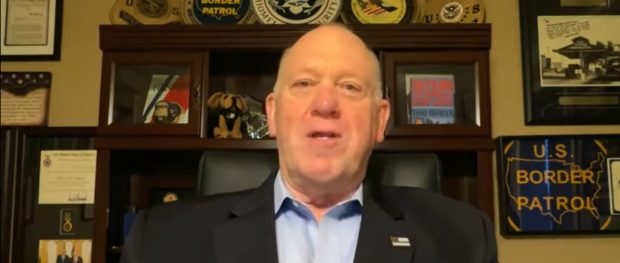It was over before it was over. Last Sunday, in a game against the Los Angeles Chargers, the New England Patriots trailed 6–0 with just over two minutes remaining. The Patriots’ quarterback Bailey Zappe hurled a desperate pass to a double-covered receiver. It bounced off the crowd of bodies and to the ground—a turnover on downs. On the sideline, the team’s head coach, Bill Belichick, pulled back his headset and wiped his nose with his hand. The rain was cold and steady. The sodden pompom on his beanie had sunk into the folds of his wet cap.
It had been a day of unrelenting futility. And the two previous Sundays had been much the same: the Patriots had not scored in nine of their past twelve quarters. This time, playing at home, the team’s offense had not even made it so far as the twenty-yard line. The defense had been fantastic, holding their opposition to ten points or fewer for the third straight game. But who cares? The Patriots had managed only one touchdown in that stretch, and had lost all three games.
Belichick has been the coach of the Patriots for twenty-four years. Earlier this season, he suffered his worst loss with the team, when the Dallas Cowboys beat them 38–3. A week later, the Patriots lost 34–0, at home, to the New Orleans Saints. Fervent speculation emerged in the press—and in bars around Boston—about Belichick’s fate. Would he be fired at the end of the season? Or stripped of his ability to micromanage personnel decisions? Would he be let go midseason, treated as unsentimentally as he had treated so many key players over the years, a hallmark of his leadership style?
Only a short while ago, these debates would have been unthinkable. Belichick is the highest-paid coach in American sports; during the offseason, he signed what the N.F.L. Network reported to be a “lucrative, multiyear” extension. What’s more, many people have described Belichick as the greatest football coach of all time. He has won six Super Bowls, more than any other coach, and three hundred and thirty-two games, behind only Don Shula, who won three hundred and forty-seven. Reasonable people, or what passes for reasonable people in the gasbaggery of sports talk, argued as recently as October that Belichick had earned the right to leave on his own terms. Then the Patriots were beaten by the Las Vegas Raiders, who were coached by Belichick’s old offensive coördinator Josh McDaniels. (McDaniels himself was fired soon after that game.) The Patriots narrowly beat the Buffalo Bills but lost to the Miami Dolphins, and then to the Washington Commanders, who have the worst record in their division. The Patriots held the Indianapolis Colts to ten points, but scored just six, in another loss. New England’s next game was against the New York Giants, who, on account of injuries, had to start their third-string quarterback, an undrafted rookie free agent named Tommy DeVito. DeVito and the Giants won, 10–7. The Patriots’ own starting quarterback, Mac Jones, a former first-round draft pick, was benched, and not for the first time.
After the Giants game came the loss to the Chargers, at which point the debates about Belichick’s status started to seem beside the point. At the rate of this year’s results to date, it would take several more seasons for Belichick to pass Shula’s record. Even a win over the Pittsburgh Steelers on Thursday night wasn’t enough to change the sense of the team’s fortunes. The Patriots started the game looking strangely competent, scoring a touchdown on their opening drive—one of a shocking three in the first half. But in the second half the offense managed just sixty-nine total yards, and ran only three plays past the fifty-yard line.
The Patriots have achieved something even worse than ineptitude: they’ve become irrelevant. Last week, ESPN and the N.F.L. announced that New England’s next matchup, against the Super Bowl champions, the Kansas City Chiefs, had been removed from the prestigious Monday Night Football slot. This is what’s called “flexing” in the TV business, and this was the first time a Monday-night N.F.L. game had ever been flexed. Even the opportunity to talk about Taylor Swift and her boyfriend, the Chiefs’ tight end Travis Kelce, was not enough to keep the Patriots in that spot.
How did things go so wrong? On offense, it’s obvious: turnovers, injuries, bad quarterback play, a terrible offensive line, the worst special teams in the league. (The team’s rookie kicker has missed a third of his field-goal attempts.) Also obvious has been the team’s lack of resilience and its inability to adjust. Belichick’s teams used to be remarkably adaptable; rather than employ a rigid system, he would adjust the team’s approach in whatever way a situation required. Players accepted the general unpleasantness of New England’s vaunted team culture, the so-called Patriot Way—“Do your job” was the mantra—because it was hard to argue with the results. During Belichick’s prime, the Patriots were almost unbeatable coming off a loss. Now, mistakes beget mistakes. The team seems caught in a misery vortex.
It may be that Belichick’s system-less approach was highly dependent on talent—and, in particular, his most talented former player, Tom Brady. Belichick has a losing record without Brady. And former Belichick assistants who have gone on to lead other teams seem to have brought little with them beyond his belittling, militaristic approach to coaching. (Belichick’s father was a coach and scout for the Naval Academy in Annapolis.) They appear to have absorbed the idea that Belichick won because he was an asshole, and that the way to win was to make your charges malleable, to grind them down to a smaller size. After Josh McDaniels was fired, his former players reportedly pulled out cigars. After another onetime Belichick assistant, Matt Patricia, was fired by the Detroit Lions, players popped champagne. Ten former Belichick assistants have had full-time head-coaching jobs in the N.F.L.; they have a combined record of 221–307–2. In thirty-six cumulative seasons, they have just six playoff appearances, and three playoff wins.
There may be a secret, deeply empathetic side to Belichick that he never shows, but the stories of how he has diminished his teams are legion. “He will say something to you in a sarcastic tone that, wow, is just so right to the core,” one of his former assistants, Phil Savage, said in an oral history about Belichick that ESPN published in 2016. “It hits home twice as hard and makes you feel about an inch tall.” Rick Venturi, an assistant under Belichick when he coached the Cleveland Browns, said, “If he has a motivational style, I’d say that it’s constant emotional discomfort. That’s why his teams never flatline.”
Now, of course, his team is flat as can be. His starting quarterback, Jones, who made the Pro Bowl in his rookie year, has seemed to regress with every accumulating humiliation. He has the third-worst rating of any quarterback this season, and, revealingly, the worst Q.B. rating when not pressured by the defense. He’s been benched in the middle of the game four times this season. His replacement, Bailey Zappe, was cut by the Patriots at the start of the season, then added to the team’s practice squad, then finally restored to the active roster. But Belichick has shown little trust in him, still declining to announce him as the team’s regular starter. Last season, Belichick relied on two former assistants, Matt Patricia and Joe Judge, to run the team’s offense, even though neither had specialized in offense before. (Their previous specialties were defense and special teams, respectively.) He then turned to another former assistant, Bill O’Brien. It almost seems as if Belichick himself is a victim of his own withered coaching tree.







